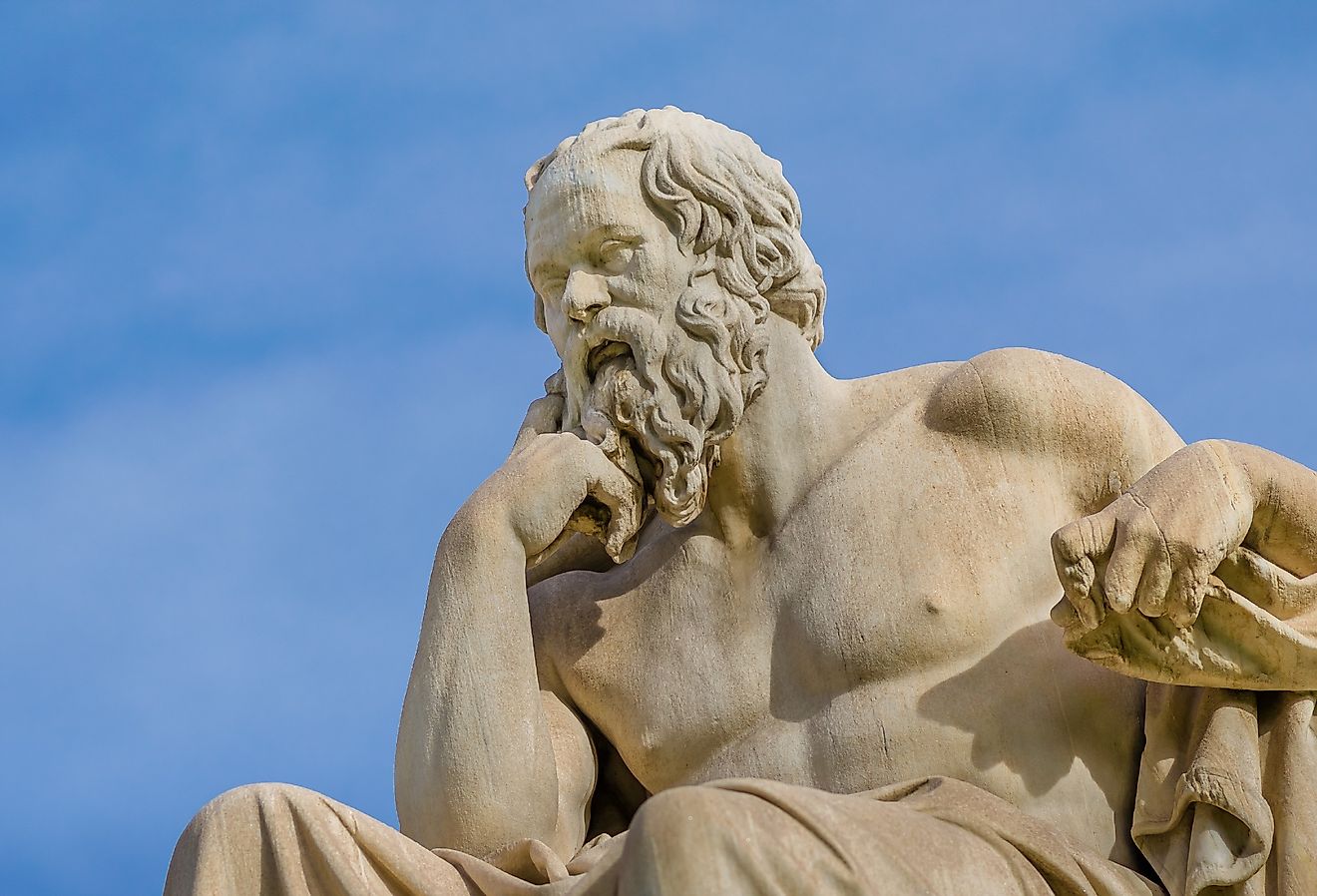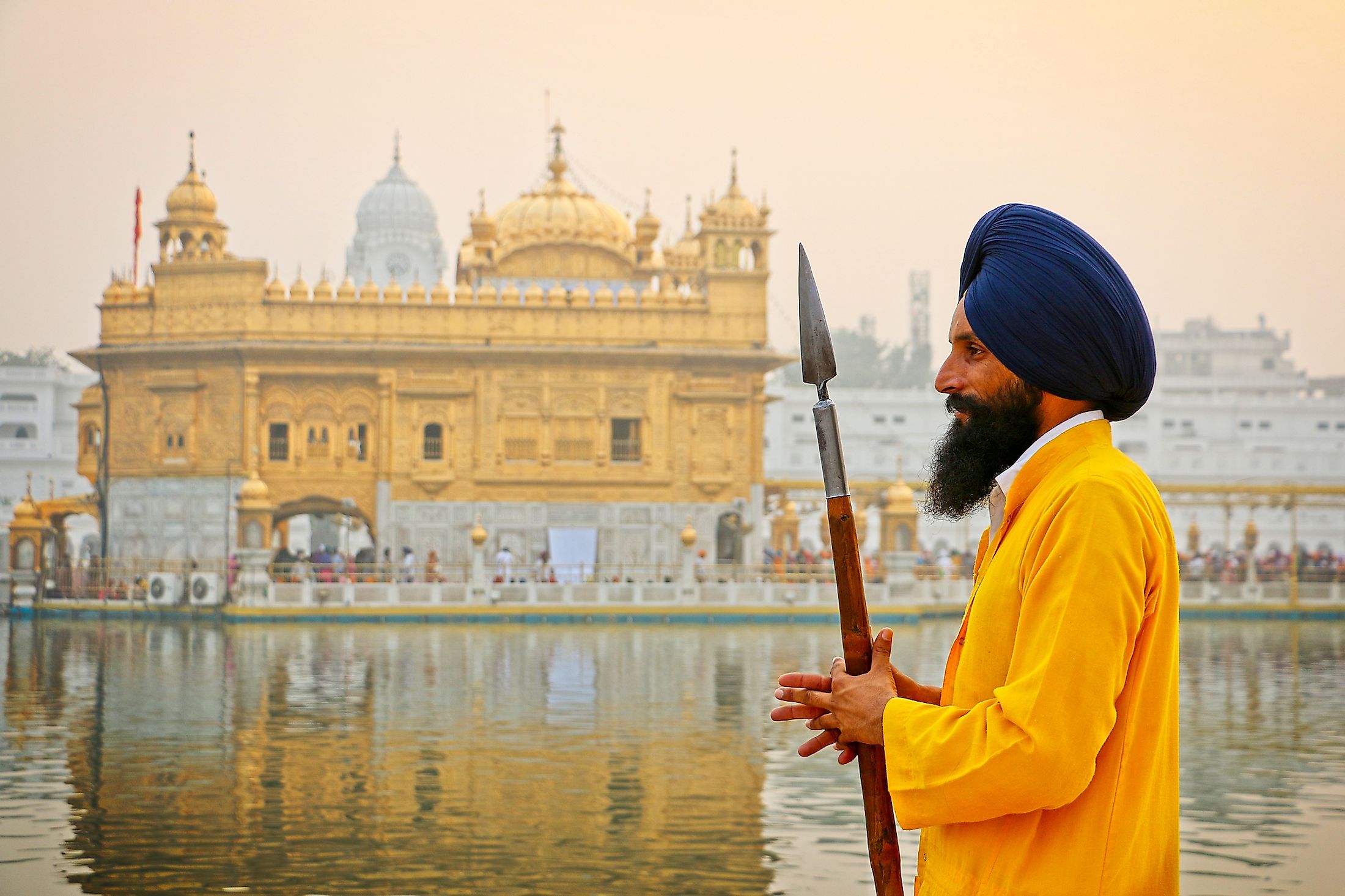
Sikhism
Also referred to as Sikhi, Sikhism is a monotheistic religion that was founded in the latter half of the 15th century CE by the Sikh Gurus in the greater Punjab region of the Indian subcontinent. At present, Sikhism has more than 25 million followers all over the world and is considered as the 5th largest organized religion in the world as well as the youngest among the world’s principal religions which include Hinduism, Islam, Christianity, Judaism, Jainism, and Buddhism.
Origin Of Sikhism
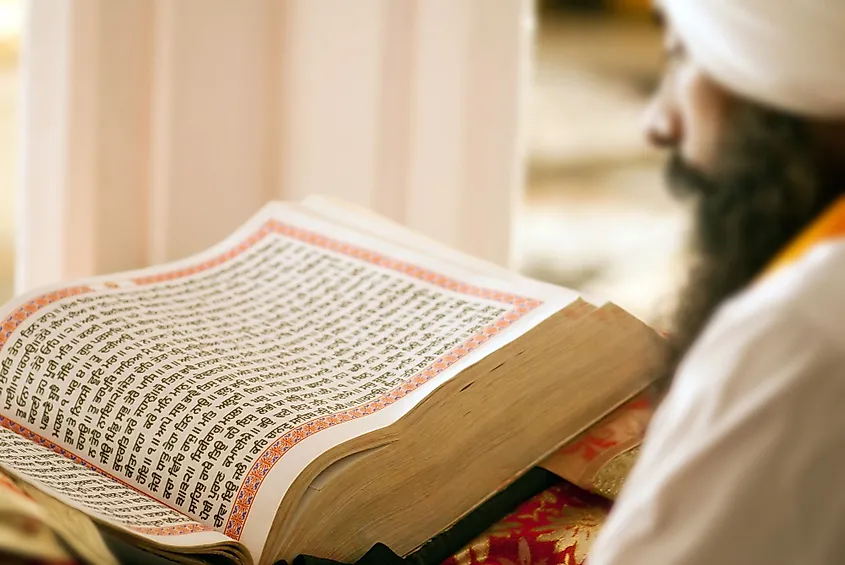
As per the Sikh tradition, Sikhism developed from the spiritual discourses of its founder Guru Nanak and his nine successors, who were referred to as Sikh Gurus. The fundamental principles of Sikhism have been inscribed in the “Guru Granth Sahib” – the holy religious scripture of the Sikhs. The first volume of the Guru Granth Sahib, known as the “Adi Granth” was compiled by Guru Arjan, who served as the 5th Sikh Guru. Printed in Gurumukhi script, the text of the Guru Granth Sahib consists of 31 main ragas, 1,430 pages, and 5,894-line compositions that have been poetically rendered and set to a rhythmic North Indian classical music. The Guru Granth Sahib also contains hymns and verses of 2 Muslim saint poets and 13 Hindu saint poets. Guru Gobind Singh, who served as the 10th Sikh Guru, named the Guru Granth Sahib as his successor, establishing it as the eternal spiritual guide for the Sikhs.
Fundamental Beliefs Of Sikhism
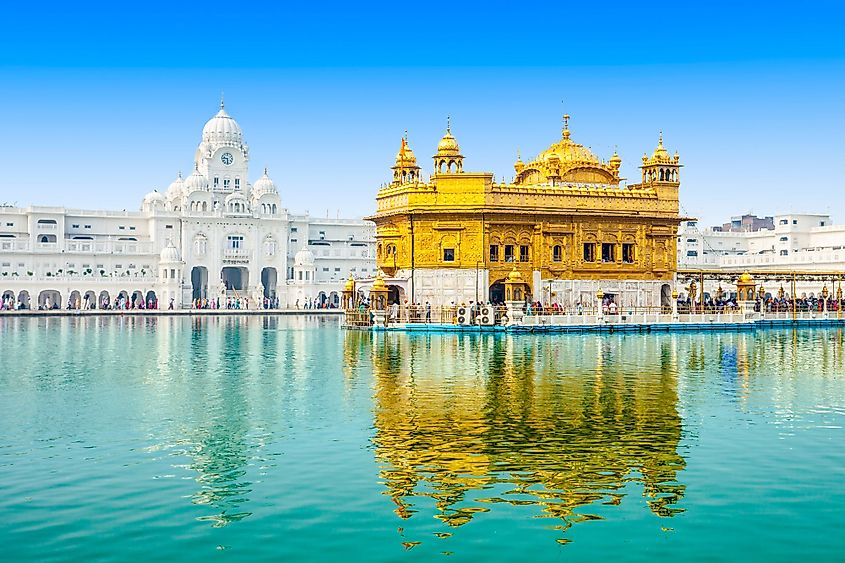
The word ‘Sikh’ in the Punjabi language means “disciple” or “learner” and Sikhs are those who faithfully believe in the teachings of Guru Nanak and his successors. As mentioned earlier, Sikhism is a monotheistic religion that believes in One Supreme Creator that is the same for all people of all religions. In the holy Sikh scripture, God is referred to as “Ik Onkar” or the ‘all-pervading spirit’, “Akal” or ‘timeless’, “Nirankar” or ‘shapeless’, “Waheguru” or ‘wondrous Teacher’, etc. The followers of Sikhism believe in three basic principles, which include: meditating on the divine name, earning a living by honest means, and the importance of performing good actions rather than carrying out any elaborate rituals such as fasting, visiting pilgrimages, idol worship, superstitions, etc. Moreover, Sikhism rejects the caste and class systems and preaches that people of different caste, sex, races, and religions are all equal in the eyes of God and therefore emphasizes service to humanity.
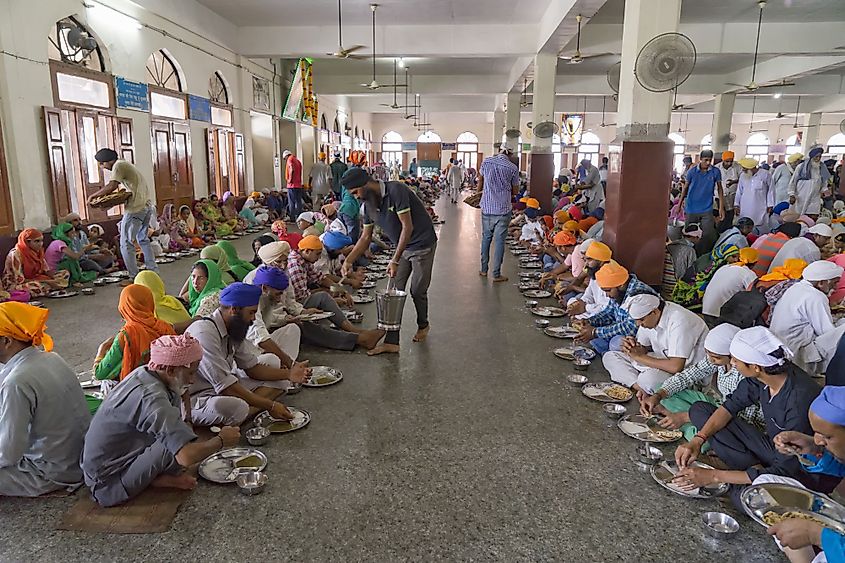
Sikhism does not have any priests, rather the Sikhs only have “Granthi”, who serves as the custodian of the Guru Granth Sahib. Any Sikh is free to read the holy scripture in a Gurudwara or the confines of their home. People from all walks of life and belonging to any religious faith can visit the Gurudwara and a free community kitchen (langar) can be found at all Gurudwaras which serves meals to the people. The highly revered Harmandir Sahib Gurudwara or the Golden Temple, situated in the city of Amritsar in the Indian State of Punjab, is regarded as one of the holiest spiritual shrines of Sikhism. The Harmandir Sahib Gurudwara is regarded as one of the most visited gurudwaras and is visited by more than 100,000 people daily.
Cultural Significance
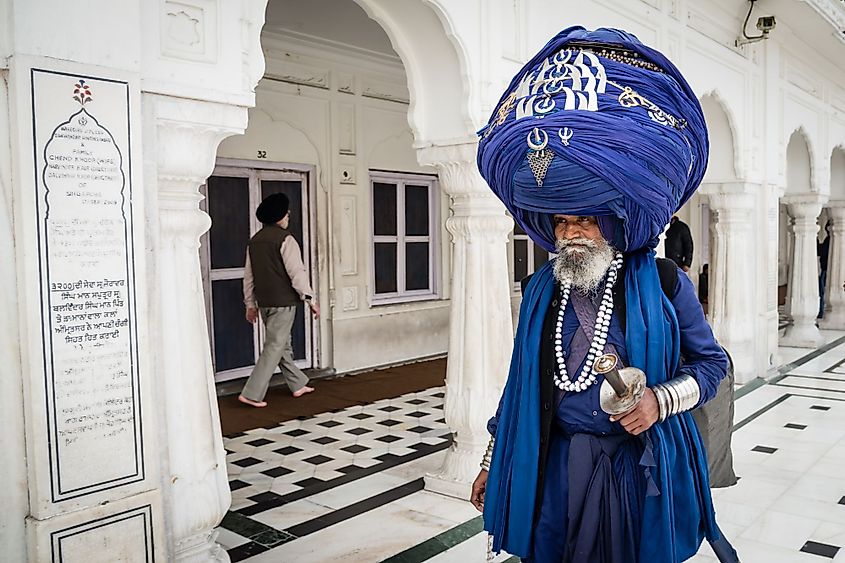
Guru Gobind Singh, the 10th Sikh Guru gave all Sikh men the surname “Singh” which means “lion” and Sikh women the surname “Kaur”, which means “princess”. In 1699, Guru Gobind Singh established the “Khalsa”, which is a religious and military order that upholds the highest Sikh virtues of dedication, commitment, and social consciousness. The members of the Khalsa undergoes a Sikh baptism ceremony and are instructed to wear the “Five K’s”, which were selected by the Sikh Guru to give the Sikhs a unique identity and make it easier for the followers to recognize each other. These “Five K’s” include an unshorn hair (kes) that was required to be covered with a turban for men; a small wooden comb (khanga); a circular steel bracelet (kara); a steel ceremonial sword (kirpan) and knee-length breeches (kaccha). Sikhs celebrate the festival of Vaisakhi to commemorate the inauguration of Khalsa by Guru Gobind Singh.
Brief History
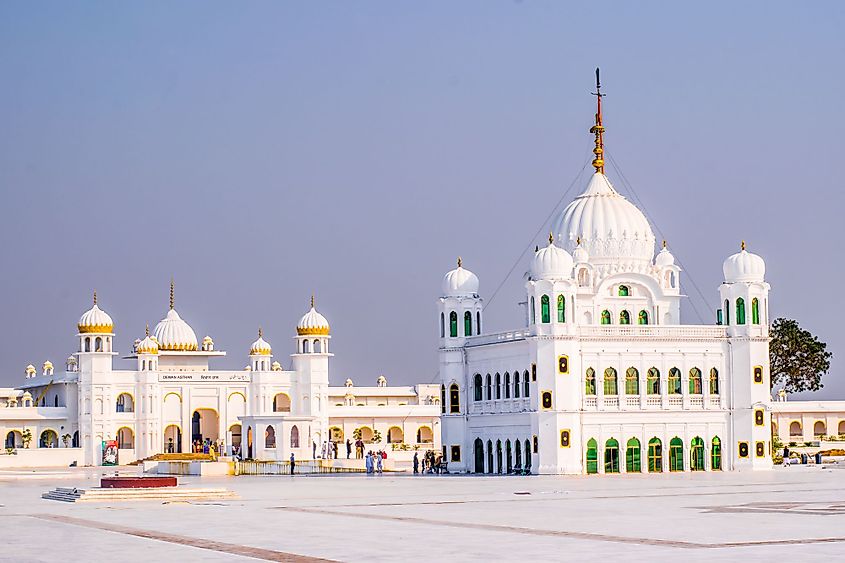
It is believed that Sikhism originated as an independent religion that marked a protest against the rigid caste system of the Hindus and the political domination of the Muslims. The founder of Sikhism – Guru Nanak, was born in 1469 in the city of Nankana Sahib in the Punjab province of Pakistan. At a very early age, Nanak began to criticize the blind rituals followed by the Hindus and the Muslims and preached a message of love and understanding that formed the principal tenets of Sikhism. In 1526, Nanak formed a small commune and his followers came to be known as Sikhs. Nanak traveled to many places within India as well as in Tibet and Baghdad. At the end of the 15th century and the beginning of the 16th century, Nanak finally settled in the greater Punjab region and founded Sikhism. Guru Nanak, the first Sikh Guru passed on the leadership of this new religion to the 9 successive Gurus.
After the death of Guru Gobind Singh in 1708, the “Guru Granth Sahib” became the eternal spiritual guide of the Sikhs. The Sikhs also fought against the Mughals and two Sikh Gurus – Guru Arjan and Guru Tegh Bahadur were mercilessly tortured and executed by the Mughals since they refused to convert to Islam. In 1577, the holy city of Amritsar in the Indian State of Punjab was founded by Guru Ram Das, who served as the 4th Sikh Guru. In 1589, the foundation stone of the Sri Harmandir Sahib was laid by a Muslim Pir of Lahore. On September 1, 1604, a copy of the Holy Granth Sahib was ceremonially installed in the main temple. The establishment of Sikhism eventually resulted in the formation of the Sikh Confederacy and the Sikh Empire in 1801. In 1849, the greater Punjab region was ceded by the Sikh Empire to the British East India Company.
Sikhism Today
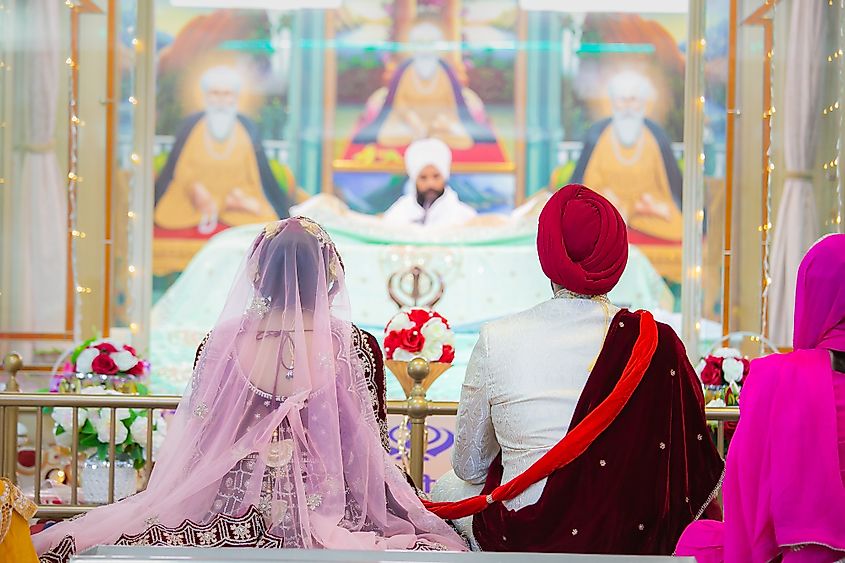
Sikhism has currently more than 25 million followers all over the world, with a majority of the Sikhs being found in the countries of India, United States, Canada, United Kingdom, Australia, Malaysia, and the East African nations of Kenya, Uganda, and Tanzania. India, being the birthplace of Sikhism, has the largest Sikh population in the world with about 22,700,000 Sikhs living in the country. About 90.2% of the world’s Sikh population is found in India and is concentrated mainly in the East Punjab region in the Indian States of Punjab, Himachal Pradesh, Haryana, Rajasthan, Uttarakhand, Uttar Pradesh as well as the Union Territories of Chandigarh, Delhi NCR and Jammu and Kashmir.

The world’s second-largest Sikh population is found in the United States with about 700,000 Sikhs living here. About 2.22% of the world’s Sikh population is found in the United States with the majority of the population living in the Northeastern and Midwestern United States as well as in California, Maryland, Texas, and Virginia.
The world’s third-largest Sikh population is found in Canada with about 454,200 Sikhs living in the country. The other nations which contain a significant population of Sikhs include the United Kingdom (432,000), Australia (125,904), Malaysia (100,000), and the East African nations of Kenya, Uganda, and Tanzania having a total Sikh population of 50,000-10,000 people).
10 Countries With The Highest Number Of Sikhs
| Rank | Country | No. of Sikhs | % of all Sikhs |
|---|---|---|---|
|
1 |
India |
22,700,000 |
90.2% |
|
2 |
United States |
700,000 |
2.22% |
|
3 |
Canada |
454,200 |
1.92% |
|
4 |
United Kingdom |
432,000 |
0.80% |
|
5 |
Australia |
125,904 |
0.52% |
|
6 |
Malaysia |
100,000 |
0.42% |
|
7 |
Kenya Uganda Tanzania |
50,000-100,000 |
0.21%-0.42% |
|
8 |
Italy |
70,000 |
0.29% |
|
9 |
Thailand |
70,000 |
0.29% |
|
10 |
Philippines |
50,000 |
0.09% |











